Zelensky's last intermediaries with Moscow
The immortal Yanukovych elite. RosUkrEnergo. Wily politicial operators. Levochkin, Firtash, Portnov. Zelensky, Yermak, Tatarov.
Lots of names today. But that’s of the essence of the ‘system’ we will be considering - the clan struggles of the Ukrainian elite.
This is an anti-systemic system, where each player is always playing for multiple nodes at once. The remarks of the Russian sociologist Uralov are relevant here - politics became so commercialized in Ukraine by the Yuschenko era, that it was no longer clear which parliamentarians worked for Yuschenko and which worked for Yanukovych. He knew what he was talking about - he spent the 2000s living in Ukraine and working as a ‘politico-technologist’ for half of the Ukrainian political spectrum (you can guess which).
Hence, I will be forgiven if I deal with some speculations regarding the loyalties of various political figures and media groups. When I do so, it isn’t to say that the person in question is ‘bought off’ by x political party, government, or president. In reality, everyone is bought off by a range of contradictory interests. And despite that - perhaps precisely because of that leverage - the ‘bought-off’ person in question still has no small amount of political agency. Ukraine’s ‘multivectorial’ foreign policy of the pre-2014 period also had its counterpart in the tangled allegiances of domestic politicians.
Beyond curiosity, there’s another reason why the following is important. At least part of the reason why the important clan I will describe today has managed to survive through post-2022 Ukrainian ‘politics’ has international significance - they are the last remaining intermediaries with Russia. If/when major negotiations with Russia begin again, some of the names in this article will play a role. And they will come under yet more danger - see the fate of Denys Kireev, the banker operating as Ukrainian intermediary with Russia during the ill-fated Belarus negotiations, executed by some sort of faction in the security services on March 5.
Anyway, I’ve gotten some entirely reasonable feedback that there are a bit too many names whirling about my substack. So before going deeper, I’ll try briefly lay out the main camps involved
The core Zelensky elite. The main names here are Zelensky himself and the head of the president’s office, Andrii Yermak. All their power comes from their office, they have no prior political clout outside of show business. Another key figure here is Oleg Tatarov, in charge of Ukraine’s court system. Unlike Yermak and Zelensky, he has had a long life in Ukrainian politics - more on him later, and in next week’s article on his possible conflict with Yermak.
The ‘pro-Russian’ social democrats. The big names here are Viktor Medvedchuk, Sergei Levochkin and Yuriy Boiko. Medvedchuk originally set up post-soviet Ukraine’s first self-described social democratic party in the west european sense. Medvedchuk occupied the important role of head of presidential administration under Ukraine’s second (and most important) president Kuchma in 2002-2005. Levochkin is the immortal grey cardinal of Ukrainian politics - more on him later. Another figure relevant here is the lawyer Andrei Portnov - head of the judiciary under Yanukovych, and the (unexpected) winner of a variety of legal battles against him in the post-maidan context.
Oleksandr Dubinsky, former parliamentarian from Zelensky’s Servant of the People party. He was jailed in 2023 for his role in leaking information regarding Hunter Biden’s corrupt activities in Ukraine. He is now a source of various interesting political speculation and information from within his prison cell.
The immortal hostages
It shouldn’t be news to my readers that the ‘pro-Russian’ social democrats haven’t done well in wartime. Their leader, Viktor Medvedchuk, was arrested and ‘exchanged’ with Russia for Ukrainian POWs back in September 2022.
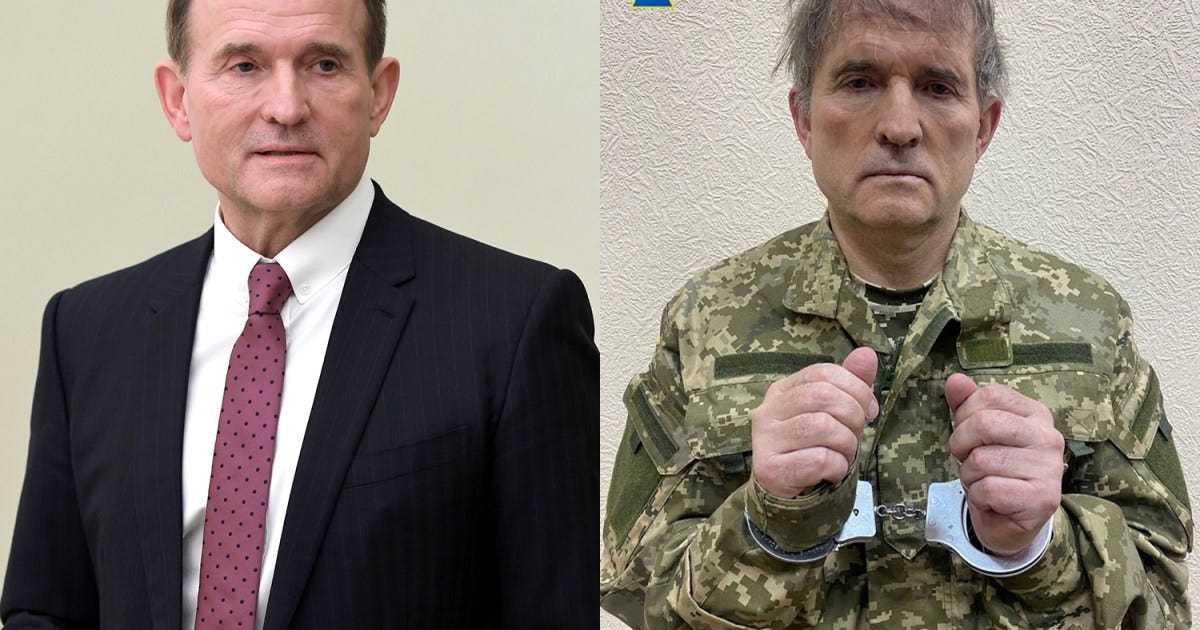
Back in February 2022, Medvedchuk’s Opposition Platform - For Life (OPFL) party counted 43 parliamentarians. In June of that year, a Lviv court banned the court from Ukrainian life, after which its remaining deputies fractured into a range of smaller parliamentary factions.
But most of the big OPFL names went into the ‘Platform for Life and Peace’, a rebranding of OPFL. Formed in April 2022, it supports the Ukrainian government and condemns the Russian state. The rest went into the faction ‘the Renewal of Ukraine’.
Why hostages? Plenty of the remaining ex-OPFL parliamentarians have had their mandates removed, making it an ever-dwindling group. Hence, it’s no surprise that they generally vote very loyally for whatever Zelensky wants. He’s their only protection from the liberal nationalists that fill the parliament, baying for OPFL blood.
Hence the ex-OPFL parliamentarians are often jokingly called ‘the hostage parliamentarians’. Liberal nationalists like Sternenko find this particularly funny.
But it isn’t simply done for laughs. I’ve written here before about the endless parliamentary crisis - deputies don’t want to vote for the unpopular laws that fill the Rada in wartime, making it difficult to pass legislation. And Zelensky’s majority in parliament was already lost back in November 2021. Legitimate described the situation thus at the start of the year:
Our source reports that the situation at Bankova [Ukraine’s equivalent of the ‘White House’] is complicated regarding the parliamentary majority. More and more deputies want to leave the Rada [parliament], realizing that the situation in the country will worsen, and all the negative fallout from the President’s Office is being dumped on the MPs, which may eventually lead to them being 'taken out.' No one wants to be a pawn.
Bankova is scaring everyone with criminal cases and compromising materials they've gathered on their own deputies. This is the only way they are managing to hold onto the mono-majority for now. But the MPs are also being pressured by Western lobbies. As a result, they have become hostages of the situation and their own foolishness. That's why no one in the President’s Office has expelled the OPFL (Opposition Platform - For Life), but instead kept them as their 'lackeys.
Through the assistance of the ex-OPFL ‘hostage votes’, Zelensky has been able to pass laws in parliament without needing to ally with Kolomoisky’s deputies in ‘For the Future’ or ex-president Poroshenko’s pro-western liberal nationalists.
But one might be forgiven for thinking that ex-OPFL deputies aren’t totally without agency. They removed a deputy from their faction in August 2024 for voting in favor of the banning of the Ukrainian Orthodox Church (Moscow Patriarchate). They also announced they wouldn’t be voting for Zelensky’s mobilization bill in December 2023 - because it violated human rights and wasn’t clear about where the money would come from.
But it isn’t true that nationalists voted for the mobilization law more than anyone else. Poroshenko’s ‘European Solidarity’ was the only party with no parliamentarians that voted in favour of the mobilization law when it was passed in April - they were particularly concerned about the lack of information about demobilization. .
The ex-OPFL members, meanwhile, were most loyal in voting for the law - probably Zelensky’s most important project in the Rada, given how western aid was conditional on its success. No ex-OPFL parliamentarians voted against it in its final reading in April. 82% of the ‘Platform for Life and Peace’ voted in favor, and 94% of those in the ‘Renewal of Ukraine’ faction - meaning that the two ex-OPFL factions were the most supportive of all the parliamentary groupings. Even some of Zelensky’s supposed allies in the Servant of the People party voted against it! So in this crucial moment, the ex-OPFL deputies certainly earned their keep for Zelensky.
The old grey cardinal
Sergey Levochkin is the most interesting figure of the OPFL. His story also goes to show just how inaccurate it is to claim that OPFL - and before it, Yanukovych’s party of regions - were simply ‘pro-Russian’.
Levochkin was the head of the presidential administration under Viktor Yanukovych (Ukraine’s president from 2010-2014) - the same crucial role that Yermak has today under Zelensky. But when the Euromaidan protests began in late 2013, it quickly became clear he was on their side. One critical moment in that affair was the 30 November ‘beating of the student protestors’ (were they actually students, who beat them, that’s another question).
Yanukovych would later accuse Levochkin himself of organizing the beating as a way to radicalize and popularize Maidan, which it certainly did. Biased post-maidan courts would find Levochkin innocent of any role in the events - hard to believe, given the fact that he was head of the presidential administration at the time, wielding immense power.
The day of the ‘beating of the students’, a range of Ukrainian business and political elites - as well as western dignitaries - came to maidan to demonstrate their loyalty, and disapproval of the Yanukovych government. Among those present was Lyovochkin’s wife. She stated her total support of Euromaidan, her wish to see a ‘total blockade of the government’. This public display of disapproval of Yanukovych by much of the Ukrainian is one of the most crucial moments in Euromaidan. Before November 30, it seemed like nothing would come of this strange gathering of journalists, but after, everything was different.
I won’t go into details of the euromaidan betrayals Yanukovych suffered - hardly surprising given how opportunistic he and his colleagues were to begin with. But Levochkin played a crucial part - he resigned from his post on January 17, 2014. Popular telegram whisperer says that Levochkin played a major role in the success of euromaidan along with the oppositional oligarch Igor Kolomoisky. Resident, another big telegram channel, claims he was working with the Americans all along and turned against his boss Yanukovych when he fired him.
Levochkin’s skill as a political operator is demonstrated by the fact that so many years and wars later, he still plays a crucial role in Kiev’s halls of power. While he and his colleagues are hostages, Zelensky/Yermak still needs their votes. As Resident says, Levochkin and Boiko aren’t in jail precisely because of that function. And in the future, they may play a far more important role as the last remaining intermediaries with the Kremlin.
And Levochkin, along with many of his ex-OPFL colleagues, is a economic heavyweight in his own right. In 2014, he entered the list of Ukraine’s richest men, holding a $150 million USD share in the important Inter media group. By 2021, Focus.ua estimated the value of Levochkin’s assets - and those of his sister, Yuliya, another OPFL parliamentarian - at $190 million. So, Levochkin clearly wasn’t feeling too uncomfortable in post-euromaidan Ukraine.
Inter brings us to another powerful figure - Dmytro Firtash. He was one of Ukraine’s top five wealthiest men throughout Yanukovych’s reign, with Forbes estimating his wealth at $3.3 billion in 2013. Besides being one of the main shareholders in Inter, Firtash’s main business was RosUkrEnergo - a rather obscure company that dealt with the billions in gas revenue moving from Russia through Ukraine to Europe. Levochkin was also a major figure in the RosUkrEnergo network.
Firtash was forced to flee the country in 2014 following the victory of Euromaidan, settling in Austria, where he is still battling extradition - to the USA! A fairly obvious example of the pressure put on disobedient members of the economic elite by Washington.
Back in 2019, Levochkin told reporters that he and Firtash had high hopes for newly-inaugurated Zelensky - meaning that they hoped he would fulfil his promise of ending the war through negotiations. The OPFL and Firtash were always very clear about their desire to see the Minsk agreements implemented. One can only imagine how they’ve perceived the events of the past two years.
But despite Levochkin’s important role in parliament, tensions between Levochkin/Firtash and Zelensky continue. Imprisoned parliamentarian Dubinsky claimed that the September 2023 arrest of Levochkin’s party colleague Shufrich was an attempt to put pressure on them to give over shares of the Inter media group. This was to be in preparation for future elections, where Zelensky would need every bit of control over the media space to stand any chances.
But in November 2023, Levochkin sold his shares in Inter to Firtash, raising the latter’s control to 90%. This would seem to indicate that control over the media giant is being concentrated outside Ukraine, out of the grips of the president.
And on September 3, Levochkin’s parliamentarian colleague Shufrich had criminal charges officially laid against him by the general prosecutor. The essence of the charges is irrelevant - the usual claims of economic ties with Russia that could be found regarding any Ukrainian politician. But it does show that tensions remain between the ex-OPFL elite and Zelensky.
Dubinsky claims that that Levochkin is not so powerless in this game. Back in November 2023, Dubinsky pointed out that Levochkin’s closeness with Zelensky didn’t bode well for the latter - Levochkin is someone who has ‘put to death more than one president before’. Dubinsky has reason to dislike Levochkin. According to him, Levochkin’s media empire was helping Zelensky share information about Dubinsky’s trips to Russia, as a way to further incriminate him.
Dubinsky also claims that strana.ua, the Ukrainian media publication I often rely on here, is Levochkin-owned, and hence by extension controlled by the office of the president. This seems at least somewhat possible, given that strana.ua continues to operate in Ukraine, with its journalists publicly visiting media sites and interviewing people, even close to the frontlines. They would need to have some kind of authorization from the government to continue existing in Ukraine’s highly dangerous media sphere.
Lending credence to this theory, strana published a video of Levochkin doing an orthodox religious ritual in January 2024. I’ll also note that strana’s coverage of the war describes Ukrainian military advances as ‘liberating’ territory. They still push for a ceasefire and criticize the government/nationalism, of course, but they certainly aren’t the ‘fifth columnist traitors’ the nationalists accuse them of being.
I won’t speculate too much about strana.ua, whose coverage I respect. Funnily enough, Dubinsky was calling for the repression of Levochkin and co in January 2023 on patriotic grounds, accusing them of being pro-Russian fifth columnists. Back then, he was still a free parliamentarian. And in March 2022 he was calling to nationalize Inter, because ‘there are no supporters of Ukraine among its owners’ (he wrote this in English, clearly with the intention of the right people reading it).
The wily lawyer
The last political operator to be dealt with today is Andrey Portnov. Head of the judiciary under Yanukovych, his many liberal-nationalist enemies in post-maidan Ukraine have had no success in their countless struggles with him.
Over the past year, there have been a string of remarkable court successes by Portnov against the most well-known pro-western/western-funded Ukrainian media publications. He took them to court over their claims he was a Russian agent - and won.
On September 25, the Shevchenko regional court of Kyiv decided in favor of Portnov once again, obliging three pro-western/western-funded media publications to pay 80 thousand hryvnia to the immortal lawyer. The publications are StateWatch, the Kyiv Independent, and Liviy Bereg - some of the most powerful pro-western media groups and NGOs.
This led to a range of bitter shrieks from nationalist luminaries like Sternenko, who claimed Portnov was ‘still in control of Ukrainian courts’, which 'demotivates’ patriots like himself. And on September 2, Canada removed sanctions from Portnov.
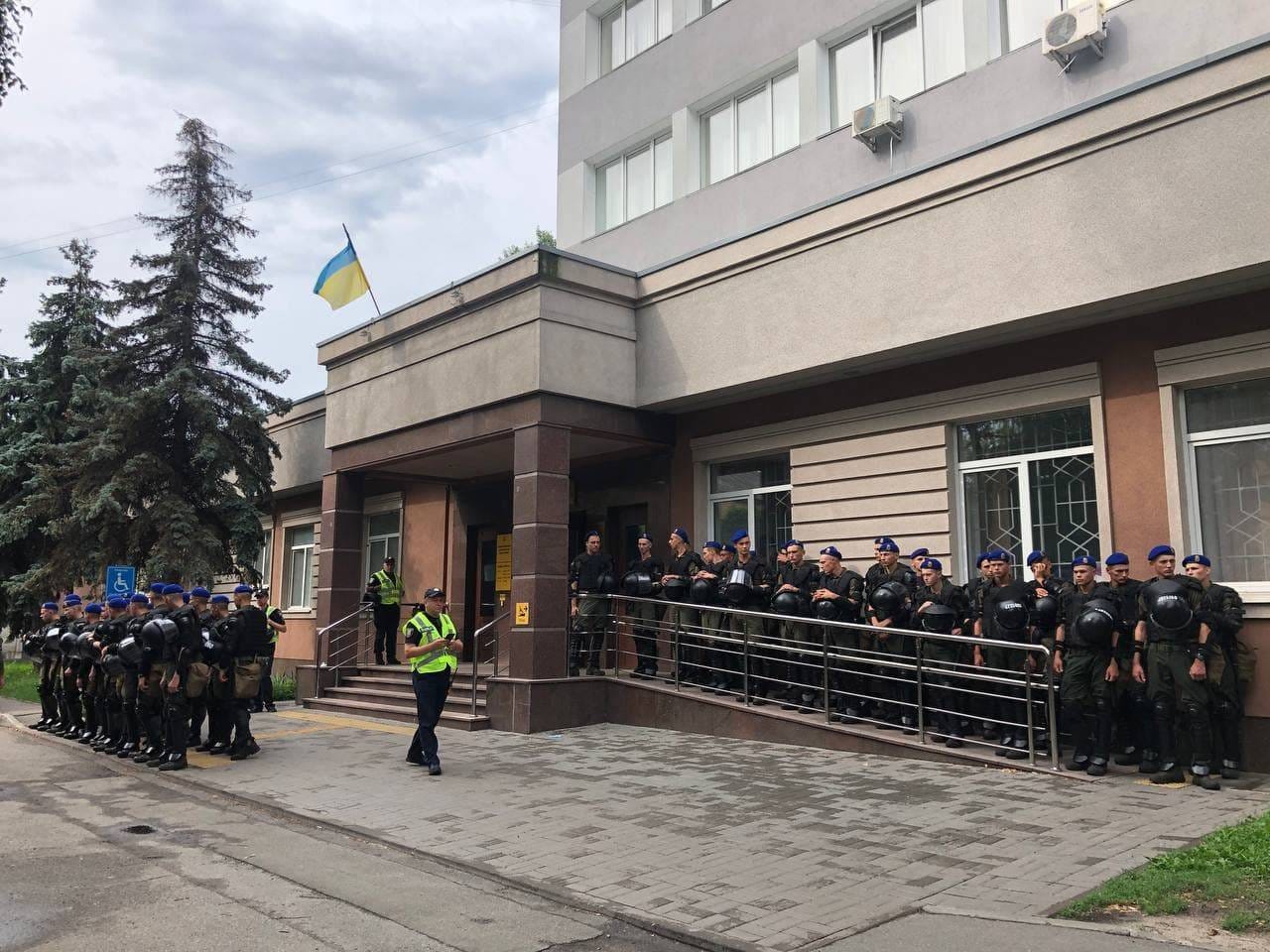
I would add here that the Shevchenko regional court is a favorite target for liberal-nationalist journalists. They consider the Shevchenko court to be a potent weapon in the hands of the government - and the ‘pre-maidan corrupt/pro-soviet judges’ - against angelic ‘young reformers’ like themselves. Here, it’s worth recalling who is in charge of Ukraine’s court system - Oleg Tatarov, deputy head of the presidential administration, who controls all judicial processes in the country according to the BBC. Tatarov, like Portnov, is both a Yanukovych-era official in the juridical sphere, and the bete noir of all liberal nationalist journalists - more on Tatarov in next week’s post.
Ukrainian media was claiming that Yermak/Tatarov and Levochkin and the OPFL were in kahoots back in 2020 and 2021. Could not Portnov’s recent victories in the courts - and the good grace shown to him even by the Canadian government - show that he is not without protection from Zelensky, Yermak and Tatarov?
Coda
Clearly, it’s hardly appropriate to describe the old Yanukovych elite as ‘pro-Russian’. Yanukovych himself was also hardly such. They have their own, domestic interests. And they are quite good at achieving them, despite the unenviable circumstances.
Their ability to form tactical alliances with whatever power in government, along with their important links with Moscow, mean that this important force certainly isn’t done for in Ukrainian politics. Particularly given the incessant rumors of a peace deal, both within Ukraine and in western media.
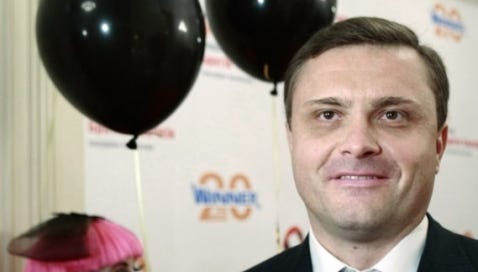


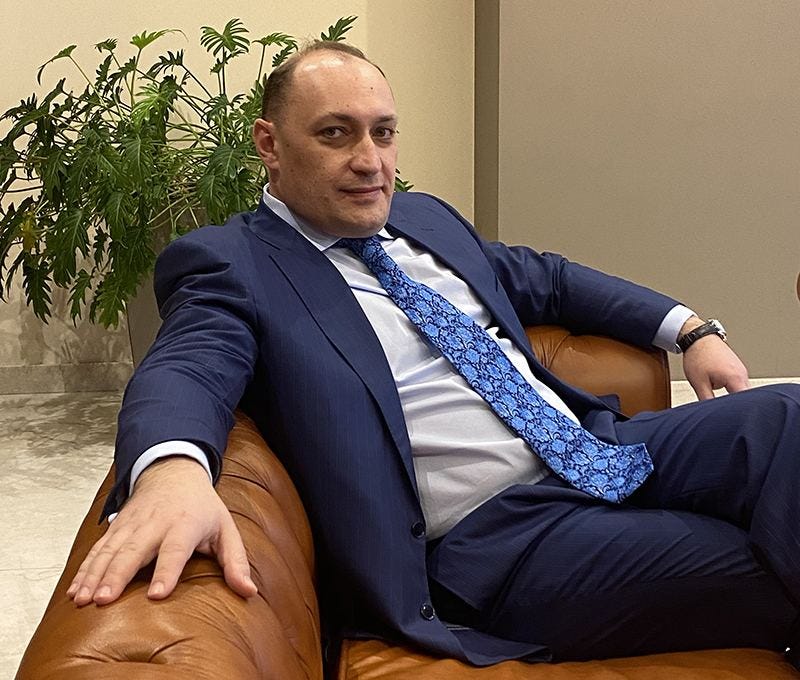
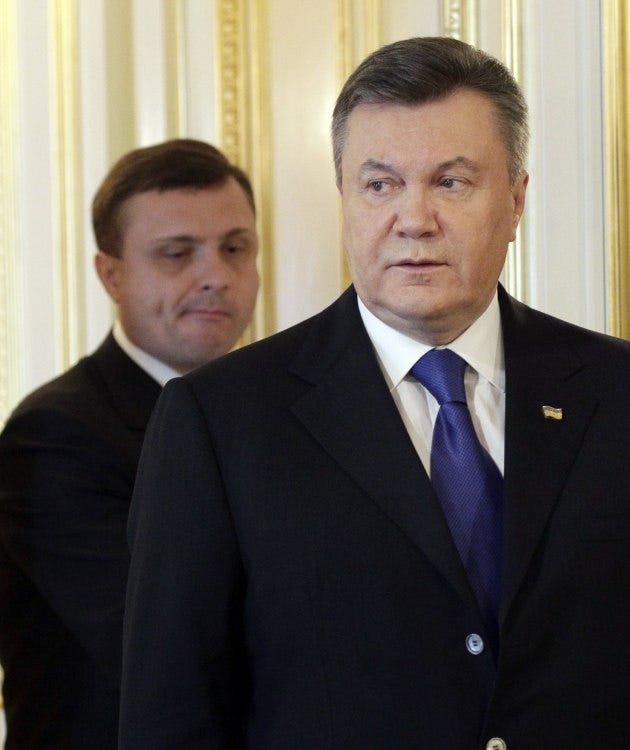
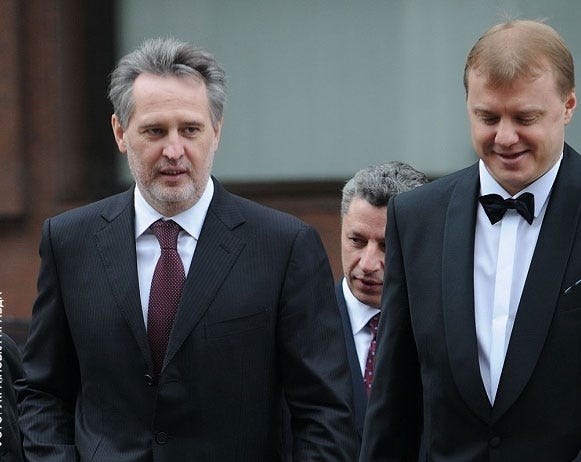

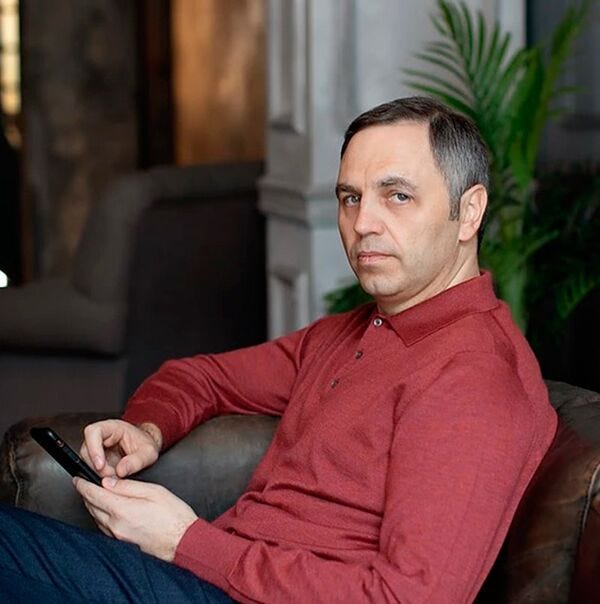
Very interesting
"Particularly given the incessant rumors of a peace deal, both within Ukraine and in western media."
I heard a saying unfortunately: when people are serious negotiating about a peace deal, they do it in private channels; and when they're not serious, they do it in public channels.
Great article :-). I look foward to hearing more about all of these people.